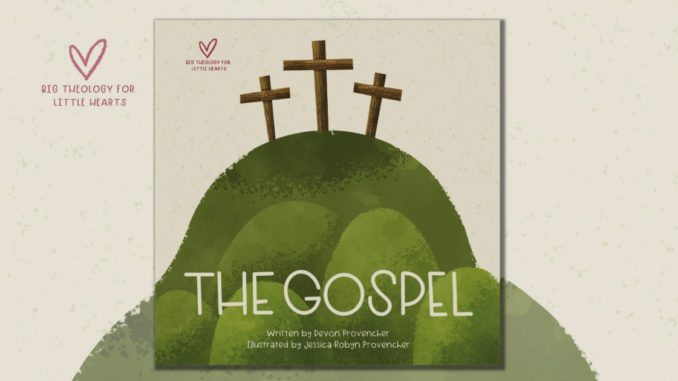
Also by this author: Jesus, God
Series: Big Theology for Little Hearts
Published by Crossway Books on February 18, 2020
Genres: Children's, Children's Educational
Buy on Amazon
Goodreads

Each book in the Big Theology for Little Hearts series introduces a big idea from the Bible with concise definitions and illustrations to help young minds gain a foundational understanding of God's word.
With each volume written to complement all the others, this series is designed to help children develop a cohesive framework of theology that includes God, creation, humanity, Jesus, and the gospel-allowing you to start having crucial conversations with your children as early as possible.
Big Theology for Little Hearts is a book series that believes you’re never too young to learn about our faith or the words we use to express it. Each book in the series focuses on one theme and several terms that Christians use about that theme. The goal is to explain in the simplest of words what these things mean. Written by Devon Provencher and illustrated by Jessica Robyn Provencher, Big Theology for Little Hearts is designed to engage even the youngest children in developing the language necessary to talk about our faith.
The Gospel takes readers through a sequential look at the Gospel message and our response to it. The defined terms are:
- God
- Man
- Rebellion
- Punishment
- Jesus
- Perfect Man
- Sacrifice
- Resurrection
- Response
- Eternal Life
My primary criticism of the book is that it clearly says that it offers “concise definitions” of these terms, it really only offers descriptors. For instance, God is defined as “God created all things and all people.” This isn’t incorrect, but it’s hardly a definition of God. (Also, let’s not get into the theological impossibility of concisely defining God.)
The second definition is for “Man,” which is “humans were created special—in the very image of God.” Immediately after saying “man,” the book shifts to the more gender-inclusive “humans.” This word shift will be confusing to young readers and listeners.
“Punishment” follows the same use of description. “Those who sin must be punished because sin is breaking God’s law.” This is not a definition of punishment. If the Provenchers wanted to keep this structure, they would have been better off defining the word “sin” (a theological word) rather than “punishment” (not a theological word). Which is something they actually do, defining it as “breaking God’s law.”
The Gospel wants to describe the Gospel story, but has locked itself into the structure of defining theological names and terms. Instead of working within that structure, it pays it a bare-minimum lip service while actually a narrative to tell the Gospel story. Also, Baby Jesus is suuuuuuuuuper white.
It’s not that there’s anything that the Provenchers say that’s theologically wrong (except for the whiteness of Jesus), it’s that the book fails its own stated goals. It adequately moves from God’s lordship over creation to human sinfulness, the salvation offered by Jesus, the need to repent, and the result of eternal life. It does not use theological terms or define theological terms.
The other two books currently in this series God and Jesus do not have this problem, at least to this extent. I get that The Gospel is a bit more abstract of a concept, but there were ways of keeping to the set structure that the Provenchers didn’t even attempt to do. This volume does not hold up to their self-set standard.
